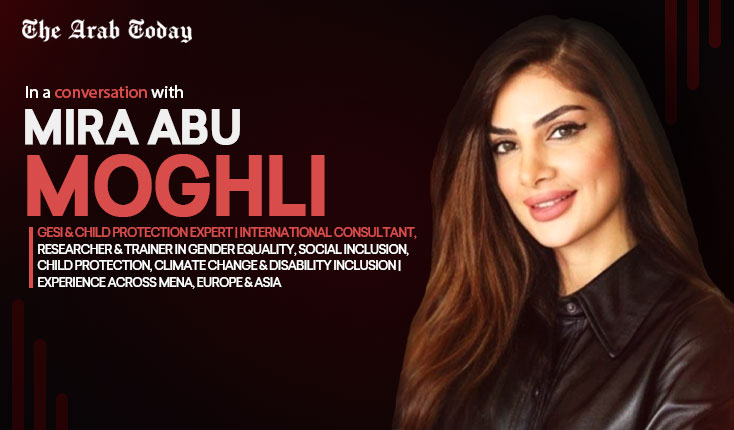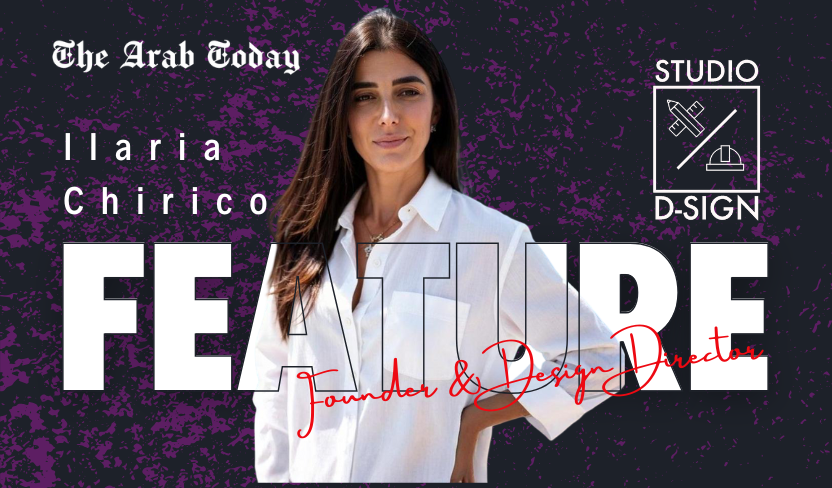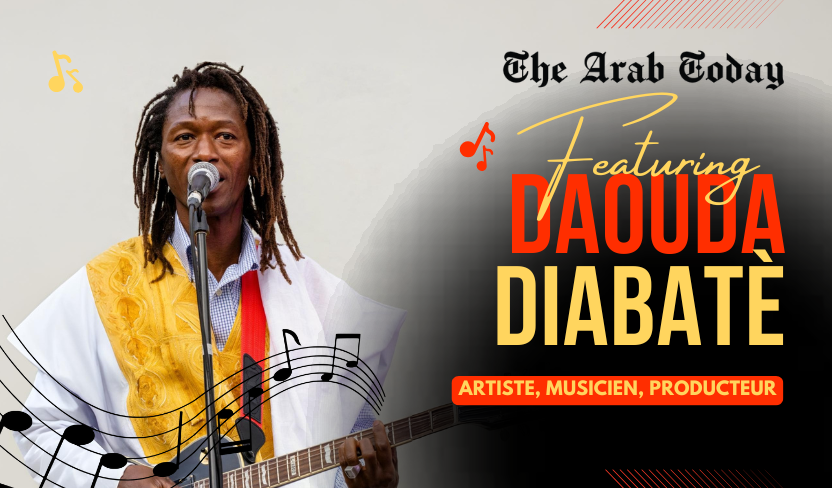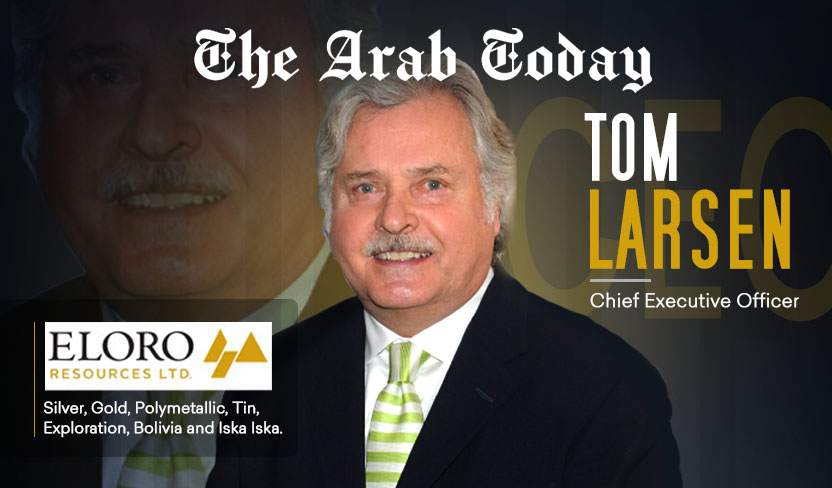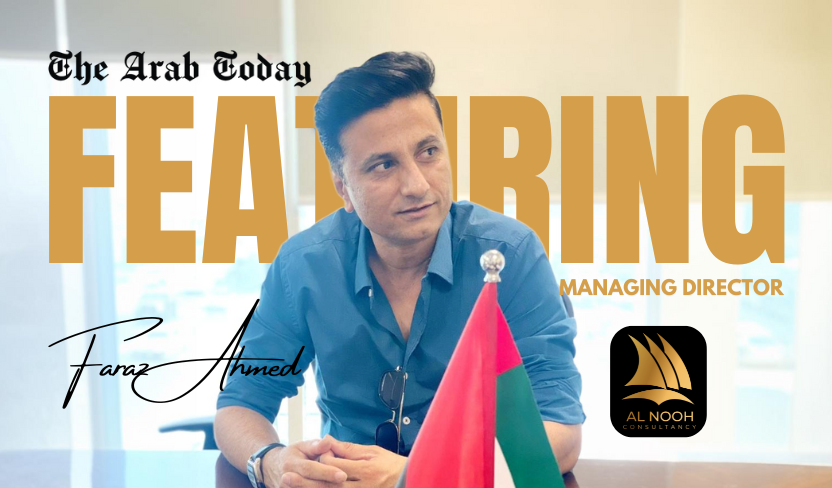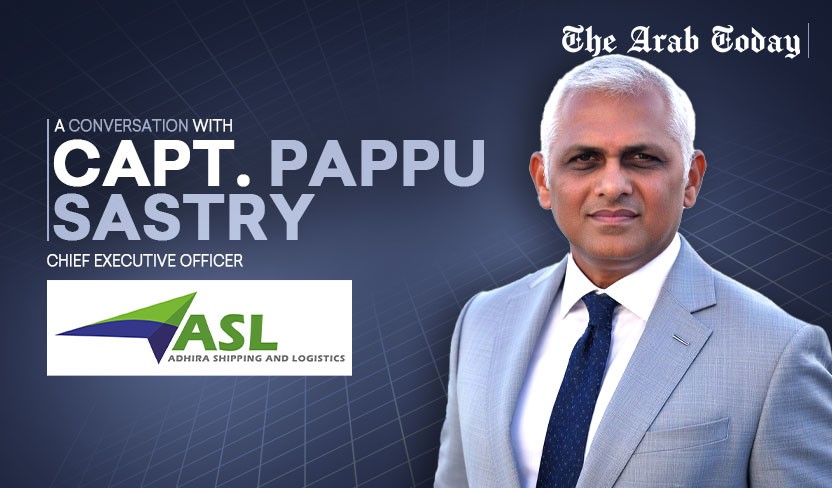Mira Abu Moghli Interview
Meet Ms. Mira Abu Moghli with over 17 years of experience across the humanitarian and development sectors in the MENA region, she specializes in integrating Gender Equality and Social Inclusion (GESI) into multi-sectoral programs. Her work is rooted in rigorous contextual analysis and participatory approaches, ensuring that marginalized groups—especially women, persons with disabilities, and refugees—are not only included but empowered. From designing gender-responsive budgets with ministries to adapting global frameworks to local cultural contexts, she focuses on building sustainable, inclusive systems. Whether supporting SMEs, addressing GBV in conflict zones, or embedding disability inclusion in climate resilience policies, her approach combines policy advocacy, community engagement, and capacity building to create transformative, long-term impact.
Integrating GESI across Sectors
We started the interview by asking, “How do you ensure gender equality and social inclusion are effectively integrated into multi-sectoral programs?
Mira Abu Moghli replied, “My approach to integrating gender equality and social inclusion is grounded in over 17 years of practical experience across humanitarian and development sectors in the MENA region. I begin with a comprehensive GESI analysis at the individual, household, community, institutional, and policy levels. This helps identify structural barriers and entry points for the inclusion of women, children, persons with disabilities, and other marginalized groups, including refugees and those affected by conflict.
Building on this analysis, I design context-specific action plans that are responsive to the local socio-cultural dynamics, while remaining aligned with international frameworks and organizational standards. These plans include measurable and gender-sensitive indicators, capacity development components for both duty-bearers and rights-holders, and clear accountability and monitoring mechanisms.
I have also worked closely with ministries, grassroots organizations, and service providers to institutionalize inclusive practices, whether by supporting the development of gender-responsive budgets, building national referral systems (including digitalized models for GBV survivors), or mainstreaming GESI in national strategies. My work also emphasizes continuous mentorship, adaptive learning, and field-based coaching, particularly in fragile contexts like rural areas and refugee camps. This ensures that GESI is not treated as a checklist, but as a transformative process that enhances the dignity, safety, and participation of those most at risk of exclusion.”
Sustainable Gender-Responsive Budgeting
The Arab Today: You have worked on gender-responsive budgeting with multiple ministries. How do you support institutions in making GRB both practical and sustainable?
Mira Abu Moghli replied, “My approach to gender-responsive budgeting is rooted in institutional strengthening and contextual relevance. I begin by conducting a diagnostic review of existing budgeting and planning processes to identify systemic gaps in addressing gender disparities. This includes analyzing how national priorities translate into sectoral allocations and whether these respond to the differentiated needs of women, men, girls, and boys.
To make GRB both practical and sustainable, I work closely with ministries to embed gender perspectives into their budget cycle, from planning and costing to execution and monitoring. I support this through the development of tailored GRB tools, user-friendly guidelines, and capacity-building workshops that are adapted to each institution’s structure and mandate.
Moreover, I prioritize fostering cross-sectoral collaboration and policy coherence by facilitating coordination between gender units, finance departments, and sectoral planners. I also emphasize the importance of aligning GRB efforts with national development strategies, SDG commitments, and performance-based budgeting systems. Sustainability is achieved through mentoring focal points, establishing institutional accountability mechanisms, and integrating GRB into the core functions of public finance management, rather than treating it as a parallel or donor-driven initiative.”
GESI in Conflict and Refugee Settings
The Arab Today: What has been your most challenging project involving refugees or conflict-affected populations, and how did you maintain a GESI-sensitive approach?
Mira Abu Moghli replied, “One of the most challenging projects I worked on, was the gender and disability assessment in Northwest Syria with the Norwegian Refugee Council (NRC). The highly fragile context, combined with restricted access and ongoing conflict, posed serious limitations on traditional data collection and programming. To uphold a GESI-sensitive approach, I adopted a remote and participatory methodology, working closely with trusted local partners who had access to the communities. We prioritized ethical research standards, ensured the safety and confidentiality of respondents, and applied an intersectional lens that accounted for gender, age, disability, and displacement status.
Additionally, my work addressing gender-based violence (GBV) in refugee camps and conflict-affected areas has been among the most emotionally and professionally demanding. The compounded vulnerabilities faced by women and girls—often silenced by fear, stigma, or lack of access to services—required not only technical expertise but also deep cultural sensitivity and trauma-informed engagement. In these settings, I focused on building the capacities of frontline workers, establishing referral pathways, and advocating for the integration of protection mechanisms into multisectoral responses.
The outcomes of these efforts informed inclusive education and protection strategies that were endorsed by both local and international stakeholders. These experiences reaffirmed that even in the most challenging environments, a GESI-sensitive approach is not only possible but essential for effective and equitable humanitarian response.”
Localizing Global Frameworks
The Arab Today: How do you adapt international frameworks to conservative and diverse cultural settings ?
Mira Abu Moghli replied, “Adapting international to conservative and culturally diverse settings requires both cultural intelligence and strategic engagement. I start with a thorough contextual and gender analysis to identify prevailing social norms, religious influences, and institutional dynamics that may affect the uptake of global commitments.
To ensure local ownership, I engage community leaders, civil society actors, and government stakeholders early in the process. I translate the principles of these frameworks into locally relevant narratives—for example, by aligning feminist values with widely accepted concepts such as family cohesion, dignity, and community resilience.
While working on different projects under FIAP framework, for instance, I reframed feminist principles using a human-centered approach, emphasizing family well-being, productivity, and shared responsibility. This not only helped reduce resistance but also built a common understanding that gender equality is essential to sustainable development and social harmony. Through inclusive dialogue and trust-building, we transformed abstract global commitments into locally embraced actions.”
Empowering SMEs with Inclusive Business Practices
The Arab Today: What methods have proven effective in helping SMEs adopt Gender-Responsive Business Approaches in their operations?
Mira Abu Moghli replied, “The most effective method is to make the process relatable and results-oriented. I use diagnostic tools that help SMEs assess their internal policies and practices. Based on the findings, I help them identify at least three GRBA components they can implement, such as inclusive hiring, flexible working hours, or safe workplace policies. I also train Business Support Providers to guide these SMEs through the change process. Sharing success stories and case studies is powerful because it demonstrates the business value of inclusivity, such as increased staff retention and better client engagement.”
Disability Inclusion in Climate Policy
The Arab Today: You have addressed disability inclusion within climate change programs. How do you ensure that persons with disabilities are actively included in climate adaptation policies?
Mira Abu Moghli replied, “Inclusion begins with disaggregated data and culminates in transformative policy change. During some of relevant projects, I led the development of a capacity needs assessment framework that holistically integrated disability, gender, and climate resilience. Recognizing the importance of participatory approaches, I co-designed the tools and methodologies in collaboration with Organizations of Persons with Disabilities (OPDs), ensuring that lived experiences directly informed program design.
My work emphasized embedding inclusion across the entire policy cycle, from data collection and risk analysis to planning and budgeting. I advocated for policy reforms that mandate accessible infrastructure, inclusive communication, and the active representation of women and persons with disabilities in climate governance. To sustain impact, I conducted capacity-building sessions for both national and local actors, enabling them to apply inclusive planning principles across sectors.
This approach ensures that climate adaptation and mitigation strategies are not only environmentally sound, but also socially just, leaving no one behind.”
Media as a Catalyst for Inclusion
lastly, we asked, “How has your background in media and communications enhanced your ability to promote GESI at a policy level?”
“My media background enables me to translate complex gender and inclusion concepts into powerful, accessible narratives that resonate with both policymakers and the public. I have developed storytelling strategies, policy briefs, and advocacy campaigns that humanize data and amplify the lived experiences of marginalized groups.
For example, through my work with national and International Organizations, I created content that brought real-world challenges and local solutions to life, allowing stakeholders to see GESI through a personal and emotional lens. These experiences profoundly shaped me—I didn’t just represent voices; I internalized them. They inspired me to become a conduit for these voices, using various platforms—media, reports, campaigns, and direct engagement—to deliver their messages, priorities, and needs to those in power.
By aligning communications with strategic policy goals, I help ensure that inclusion is not only understood but institutionalized and prioritized across systems. It’s more than storytelling; its advocacy rooted in empathy and evidence.” Mira Abu Moghli concluded
Connect with Mira Abu Moghli on LinkedIn
Also Read:
Saad Tayyab: Biochemistry and Pharmaceutical Innovation
Alexander Kopenkin on Building InTrouble
Alona Koenig Creating Lasting Memories with Fine Art Photos
